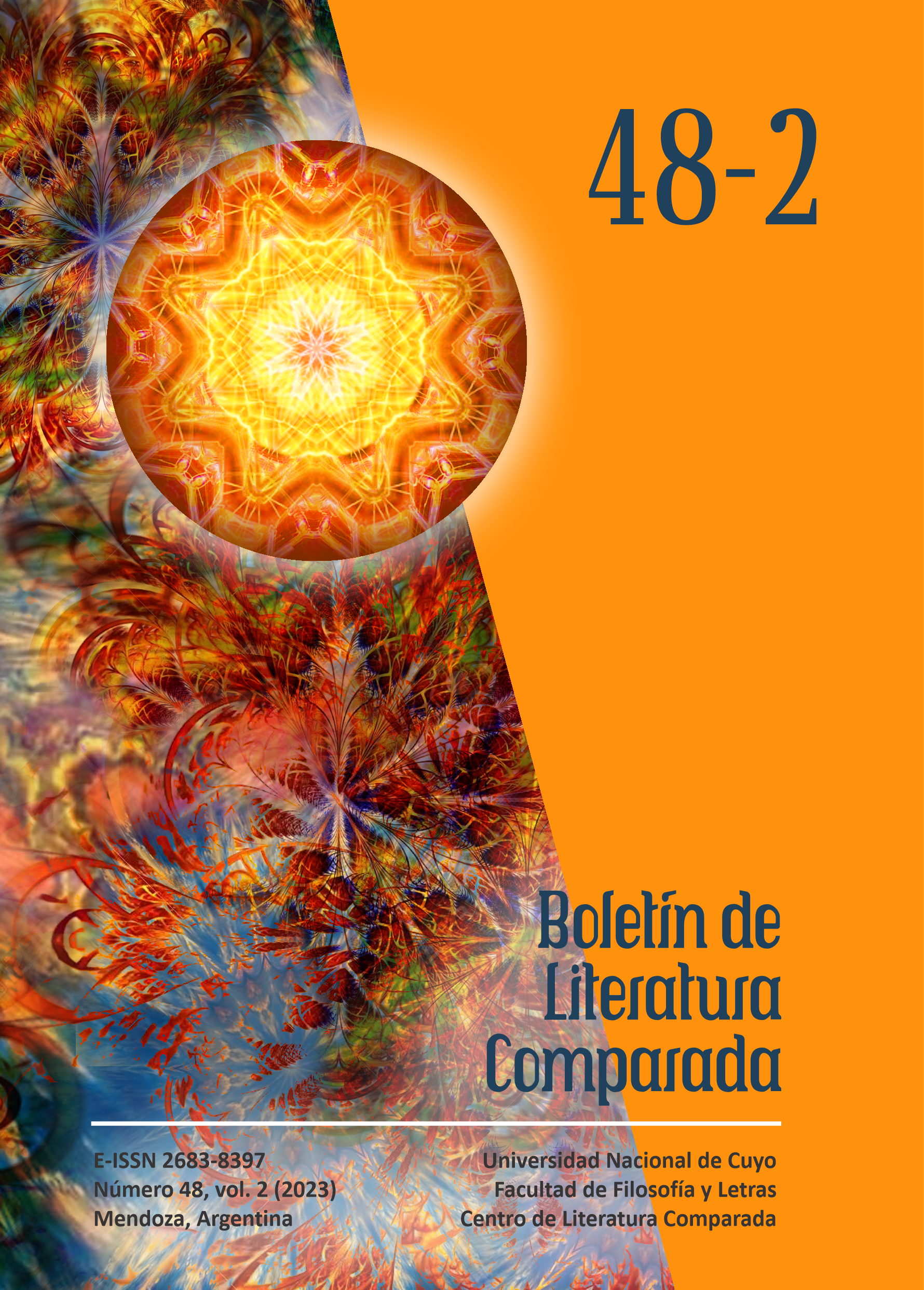The Subject and the Truth:
the Configuration of the narrative Voice based on the Notion of ‘parresia’ in Ivan Jablonka and Javier Cercas
DOI:
https://doi.org/10.48162/rev.54.028Keywords:
Second World War, Memory, Subjectivity, Truth, VoiceAbstract
The following work is based on the analysis of two literary works that were published in the 21st century: Historia de los abuelos que no tuve, by Ivan Jablonka, and El impostor, by Javier Cercas, two novels that are articulated around the search and investigation of the past based on the events –and their effects– that emerge from the period of the Second World War. One of the categories of analysis that is taken is the one of narrative voice whose construction, in each story, is conditioned by the way in which the subject
relates to the truth throughout the narrative outline. This relationship established between subject and truth responds to the concept of “parrhesia” –second category of analysis–, a term analyzed by Michel Foucault in his book Discourse and Truth; from this idea, truth is thought not as an objective in itself but as a path of search and permanent transformation along which individuals try to understand “what men do.”
References
Arfuch, Leonor (2013). Memoria y autobiografía. Exploraciones en los límites. Buenos Aires: Fondo de Cultura Económica.
Basile, Teresa. (2020). De la posmemoria a la doble memoria. Tópicos del seminario, 2 (44), 84-111. En Memoria Académica. Disponible en: https://www.memoria.fahce.unlp.edu.ar/art_revistas/pr.11981/pr.11981.pdf
Cercas, Javier (2015). El impostor. Buenos Aires: Literatura Random House.
Ferrer, Christian (2005). “Clase 12. La letra y su molde. Meditaciones sobre lectura, escritura y tecnología”. En Diploma Superior en Lectura, escritura y educación. Buenos Aires: Flacso Virtual, Argentina.
Foucault, Michel (2017). Discurso y verdad: Conferencias sobre el coraje de decirlo todo. Buenos Aires: Siglo Veintiuno Editores Argentina.
Heker, Liliana (2018). “Encontrar la propia voz, los personajes y la verosimilitud del texto”. En V. Liliana, Maestros de la escritura. Buenos Aires: Ediciones Godot.
Hirsch, Marianne (2008). “The Generation of Postmemory”. En Poetics Today, 29:1.
Jablonka, Ivan (2015). Historia de los abuelos que no tuve. Buenos Aires: Libros del Zorzal.
Jablonka, Ivan. (2016) La historia es una literatura contemporánea. Buenos Aires: Fondo de Cultura Económica.
Linietsky, Paula (2016). “Reseña: Ivan Jablonka, Historia de los abuelos que no tuve”. Anuario IEHS, 31 (2), pp. 183-186.
Downloads
Published
How to Cite
Issue
Section
License

This work is licensed under a Creative Commons Attribution-NonCommercial-ShareAlike 4.0 International License.




